 Backend Development
Backend Development PHP Tutorial
PHP Tutorial Object-oriented keywords in PHP, php object-oriented keywords_PHP tutorial
Object-oriented keywords in PHP, php object-oriented keywords_PHP tutorialObject-oriented keywords in PHP, php object-oriented keywords
Commonly used keywords in php object-oriented include final, static, const
(1) final:
1. Final cannot modify member attributes
2. Final can only modify classes and methods
Function:
Classes modified with final cannot be inherited by subclasses
Methods modified with final cannot be overridden by subclasses
Used to restrict classes from being inherited. If methods cannot be overridden, use final
(2.) static:
1. Use static to modify member attributes and member methods, but not classes
2. Member attributes modified with static can be shared by all objects of the same class
3 , Static data is stored in the data segment in the memory (initializing the static segment)
4. Static data is allocated to the memory every time the class is loaded. When the class is used in the future, it is directly obtained from the data segment. Get
5. As long as this class is used in the program (this class name appears), the class is loaded
Note: Static members must be accessed using class names. There is no need to create objects or objects to access
Class name::static members
If you use static members in a class, you can use self to represent this class. (Function equivalent to $this)
self:: Static member
6. Static methods cannot access non-static members. In non-static methods, static members can be accessed.
This is because non-static members must be accessed using objects. To access internal members, $this is used. Static methods do not need to be called using objects, so there is no object, and $this cannot represent any object. Non-static members must also use objects. If you are sure that a method does not use non-static members, you can declare this method as a static method (objects cannot be created and accessed directly using the class name)
(3.) const:
1, it can only Modify member attributes
2. Use const
to declare constant attributes in a class. 3. The naming method has the same effect as define
4. The access method is the same as static static member attributes: class name::constant self ::Constant
5. Constants must be given initial values when declared
6. Constants cannot be reassigned after declaration
Usually to prevent a method of the parent class from being overridden.
The functions of public and var are similar, because if the variables defined by var are not protected or private, they default to public
. In php4, var
is generally used, and in php5, public is generally used.
Nowadays, public is basically used instead of var
var is used to define variables; public is used to define the visibility of property (attribute) and method (method)
 如何使用Go语言实现面向对象的事件驱动编程Jul 20, 2023 pm 10:36 PM
如何使用Go语言实现面向对象的事件驱动编程Jul 20, 2023 pm 10:36 PM如何使用Go语言实现面向对象的事件驱动编程引言:面向对象的编程范式被广泛应用于软件开发中,而事件驱动编程是一种常见的编程模式,它通过事件的触发和处理来实现程序的流程控制。本文将介绍如何使用Go语言实现面向对象的事件驱动编程,并提供代码示例。一、事件驱动编程的概念事件驱动编程是一种基于事件和消息的编程模式,它将程序的流程控制转移到事件的触发和处理上。在事件驱动
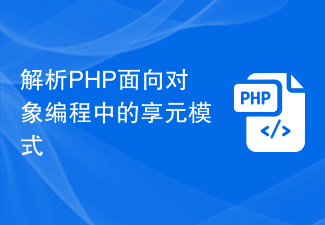 解析PHP面向对象编程中的享元模式Aug 14, 2023 pm 05:25 PM
解析PHP面向对象编程中的享元模式Aug 14, 2023 pm 05:25 PM解析PHP面向对象编程中的享元模式在面向对象编程中,设计模式是一种常用的软件设计方法,它可以提高代码的可读性、可维护性和可扩展性。享元模式(Flyweightpattern)是设计模式中的一种,它通过共享对象来降低内存的开销。本文将探讨如何在PHP中使用享元模式来提高程序性能。什么是享元模式?享元模式是一种结构型设计模式,它的目的是在不同对象之间共享相同的
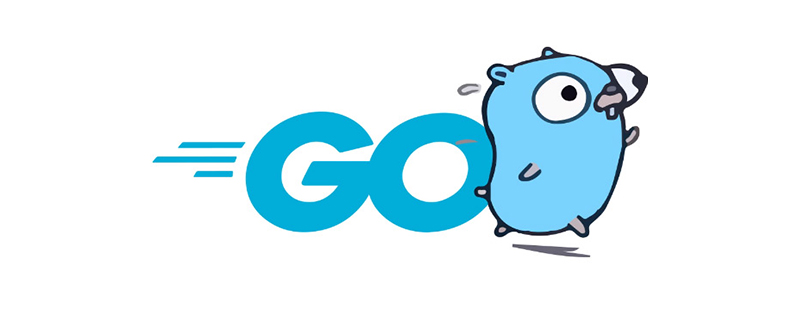 go语言是面向对象的吗Mar 15, 2021 am 11:51 AM
go语言是面向对象的吗Mar 15, 2021 am 11:51 AMgo语言既不是面向对象,也不是面向过程,因为Golang并没有明显的倾向,而是更倾向于让编程者去考虑该怎么去用它,也许它的特色就是灵活,编程者可以用它实现面向对象,但它本身不支持面向对象的语义。
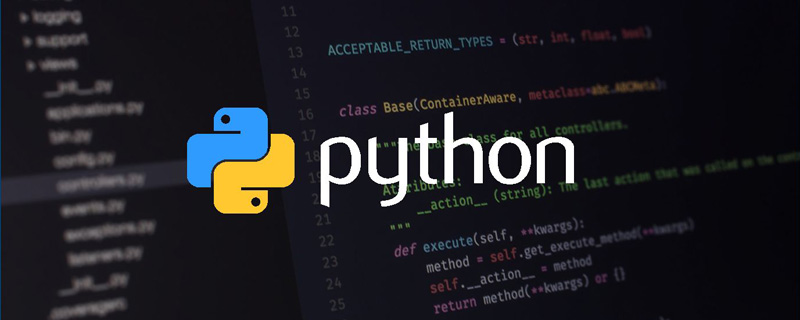 python是面向对象还是面向过程Jan 05, 2023 pm 04:54 PM
python是面向对象还是面向过程Jan 05, 2023 pm 04:54 PMpython是面向对象的。Python语言在设计之初,就定位为一门面向对象的编程语言,“Python中一切皆对象”就是对Pytho 这门编程语言的完美诠释。类和对象是Python的重要特征,相比其它面向对象语言,Python很容易就可以创建出一个类和对象;同时,Python也支持面向对象的三大特征:封装、继承和多态。
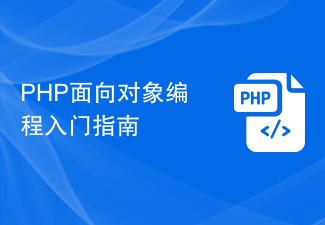 PHP面向对象编程入门指南Jun 11, 2023 am 09:45 AM
PHP面向对象编程入门指南Jun 11, 2023 am 09:45 AMPHP作为一种广泛使用的编程语言,已成为构建动态网站和网络应用程序的首选语言之一。其中,面向对象编程(OOP)的概念和技术越来越受到开发者的欢迎和推崇。本篇文章将为读者提供PHP面向对象编程的入门指南,介绍OOP的基本概念,语法和应用。什么是面向对象编程(OOP)?面向对象编程(Object-OrientedProgramming,简称OOP),是一种编程
 如何使用Go语言实现面向对象的数据库访问Jul 25, 2023 pm 01:22 PM
如何使用Go语言实现面向对象的数据库访问Jul 25, 2023 pm 01:22 PM如何使用Go语言实现面向对象的数据库访问引言:随着互联网的发展,大量的数据需要被存储和访问,数据库成为了现代应用开发中的重要组成部分。而作为一门现代化、高效性能的编程语言,Go语言很适合用来处理数据库操作。而本文将重点讨论如何使用Go语言实现面向对象的数据库访问。一、数据库访问的基本概念在开始讨论如何使用Go语言实现面向对象的数据库访问之前,我们先来了解一下
 面向对象是啥意思Jul 17, 2023 pm 02:03 PM
面向对象是啥意思Jul 17, 2023 pm 02:03 PM面向对象是软件开发方法,一种编程范式。是一种将面向对象的思想应用于软件开发过程并指导开发活动的系统方法。这是一种基于“对象”概念的方法论。对象是由数据和允许的操作组成的包,它与目标实体有直接的对应关系。对象类定义了一组具有类似属性的对象。面向对象是基于对象的概念,以对象为中心,以类和继承为构建机制,认识、理解和描绘客观世界,设计和构建相应的软件系统。
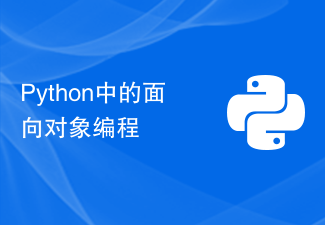 Python中的面向对象编程Jun 10, 2023 pm 05:19 PM
Python中的面向对象编程Jun 10, 2023 pm 05:19 PMPython作为一种高级编程语言,在众多编程语言中占有举足轻重的地位。它的语法简单易学,拥有各种强大的编程库,被广泛应用于数据处理、机器学习、网络编程等领域。而其中最重要的一点便是Python完美支持面向对象编程,本文将重点阐述Python中的面向对象编程。一、面向对象编程的基本概念在面向对象的编程语言中,数据和方法被封装在对象的内部。这使得对象能够独立地进


Hot AI Tools

Undresser.AI Undress
AI-powered app for creating realistic nude photos

AI Clothes Remover
Online AI tool for removing clothes from photos.

Undress AI Tool
Undress images for free

Clothoff.io
AI clothes remover

AI Hentai Generator
Generate AI Hentai for free.

Hot Article

Hot Tools

Dreamweaver CS6
Visual web development tools

ZendStudio 13.5.1 Mac
Powerful PHP integrated development environment

Atom editor mac version download
The most popular open source editor

SublimeText3 Mac version
God-level code editing software (SublimeText3)

Safe Exam Browser
Safe Exam Browser is a secure browser environment for taking online exams securely. This software turns any computer into a secure workstation. It controls access to any utility and prevents students from using unauthorized resources.






